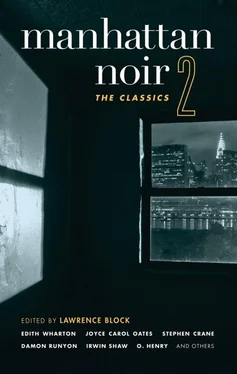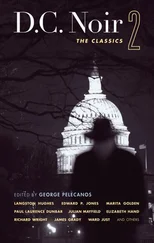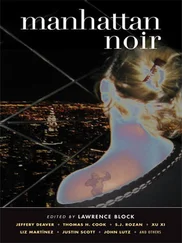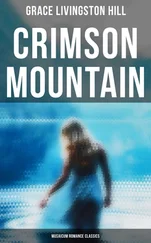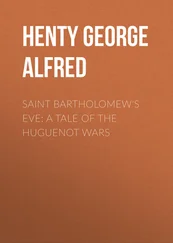So it ended. It always ends. But don’t tell me there isn’t happiness. It exists, it’s there. You just have to find it, and you have to keep it, if you can. It won’t last, but it’s there.
In for a penny
by Lawrence Block
Eighth Avenue
(Originally published in 1999)
Paul kept it very simple. That seemed to be the secret. You kept it simple, you drew firm lines and didn’t cross them. You put one foot in front of the other, took it day by day, and let the days mount up.
The state didn’t take an interest. They put you back on the street with a cheap suit and figured you’d be back inside before the pants got shiny. But other people cared. This one outfit, about two parts ex-cons to one part holy joes, had wised him up and helped him out. They’d found him a job and a place to live, and what more did he need?
The job wasn’t much, frying eggs and flipping burgers in a diner at 23rd and Eighth. The room wasn’t much, either, seven blocks south of the diner, four flights up from the street. It was small, and all you could see from its window was the back of another building. The furnishings were minimal — an iron bedstead, a beat-up dresser, a rickety chair — and the walls needed paint and the floor needed carpet. There was a sink in the room, a bathroom down the hall. No cooking, no pets, no overnight guests, the landlady told him. No kidding, he thought.
His shift was four to midnight, Monday through Friday. The first weekend he did nothing but go to the movies, and by Sunday night he was ready to climb the wall. Too much time to kill, too few ways to kill it that wouldn’t get him in trouble. How many movies could you sit through? And a movie cost him two hours’ pay, and if you spent the whole weekend dragging yourself from one movie house to another...
Weekends were dangerous, one of the ex-cons had told him. Weekends could put you back in the joint. There ought to be a law against weekends.
But he figured out a way around it. Walking home Tuesday night, after that first weekend of movie-going, he’d stopped at three diners on Seventh Avenue, nursing a cup of coffee and chatting with the guy behind the counter. The third time was the charm; he walked out of there with a weekend job. Saturday and Sunday, same hours, same wages, same work. And they’d pay him off the books, which made his weekend work tax-free.
Between what he was saving in taxes and what he wasn’t spending on movies, he’d be a millionaire.
Well, maybe he’d never be a millionaire. Probably be dangerous to be a millionaire, a guy like him, with his ways, his habits. But he was earning an honest dollar, and he ate all he wanted on the job, seven days a week now, so it wasn’t hard to put a few bucks aside. The weeks added up and so did the dollars, and the time came when he had enough cash socked away to buy himself a little television set. The cashier at his weekend job set it up and her boyfriend brought it over, so he figured it fell off a truck or walked out of somebody’s apartment, but it got good reception and the price was right.
It was a lot easier to pass the time once he had the TV. He’d get up at ten or eleven in the morning, grab a shower in the bathroom down the hall, then pick up doughnuts and coffee at the corner deli. Then he’d watch a little TV until it was time to go to work.
After work he’d stop at the same deli for two bottles of cold beer and some cigarettes. He’d settle in with the TV, a beer bottle in one hand and a cigarette in the other and his eyes on the screen.
He didn’t get cable, but he figured that was all for the good. He was better off staying away from some of the stuff they were allowed to show on cable TV. Just because you had cable didn’t mean you had to watch it, but he knew himself, and if he had it right there in the house how could he keep himself from looking at it?
And that could get you started. Something as simple as late-night adult programming could put him on a train to the big house upstate. He’d been there. He didn’t want to go back.
He would get through most of a pack of cigarettes by the time he turned off the light and went to bed. It was funny, during the day he hardly smoked at all, but back in his room at night he had a butt going just about all the time. If the smoking was heavy, well, the drinking was ultralight. He could make a bottle of Bud last an hour. More, even. The second bottle was always warm by the time he got to it, but he didn’t mind, nor did he drink it any faster than he’d drunk the first one. What was the rush?
Two beers was enough. All it did was give him a little buzz, and when the second beer was gone he’d turn off the TV and sit at the window, smoking one cigarette after another, looking out at the city.
Then he’d go to bed. Then he’d get up and do it all over again.
The only problem was walking home.
And even that was no problem at first. He’d leave his rooming house around three in the afternoon. The diner was ten minutes away, and that left him time to eat before his shift started. Then he’d leave sometime between midnight and twelve-thirty — the guy who relieved him, a manic Albanian, had a habit of showing up ten to fifteen minutes late. Paul would retrace his earlier route, walking the seven blocks down Eighth Avenue to 16th Street with a stop at the deli for cigarettes and beer.
The Rose of Singapore was the problem.
The first time he walked past the place, he didn’t even notice it. By day it was just another seedy bar, but at night the neon glowed and the jukebox music poured out the door, along with the smell of spilled drinks and stale beer and something more, something unnameable, something elusive.
“If you don’t want to slip,” they’d told him, “stay out of slippery places.”
He quickened his pace and walked on by.
The next afternoon the Rose of Singapore didn’t carry the same feeling of danger. Not that he’d risk crossing the threshold, not at any hour of the day or night. He wasn’t stupid. But it didn’t lure him, and consequently it didn’t make him uncomfortable.
Coming home was a different story.
He was thinking about it during his last hour on the job, and by the time he reached it he was walking all the way over at the edge of the sidewalk, as far from the building’s entrance as he could get without stepping down into the street. He was like an acrophobe edging along a precipitous path, scared to look down, afraid of losing his balance and falling accidentally, afraid too of the impulse that might lead him to plunge purposefully into the void.
He kept walking, eyes forward, heart racing. Once he was past it he felt himself calming down, and he bought his two bottles of beer and his pack of cigarettes and went on home.
He’d get used to it, he told himself. It would get easier with time.
But, surprisingly enough, it didn’t. Instead it got worse, but gradually, imperceptibly, and he learned to accommodate it. For one thing, he steered clear of the west side of Eighth Avenue, where the Rose of Singapore stood. Going to work and coming home, he kept to the opposite side of the street.
Even so, he found himself hugging the inner edge of the sidewalk, as if every inch closer to the street would put him that much closer to crossing it and being drawn mothlike into the tavern’s neon flame. And, approaching the Rose of Singapore’s block, he’d slow down or speed up his pace so that the traffic signal would allow him to cross the street as soon as he reached the corner. As if otherwise, stranded there, he might cross in the other direction instead, across Eighth Avenue and on into the Rose.
He knew it was ridiculous but he couldn’t change the way it felt. When it didn’t get better he found a way around it.
Читать дальше
